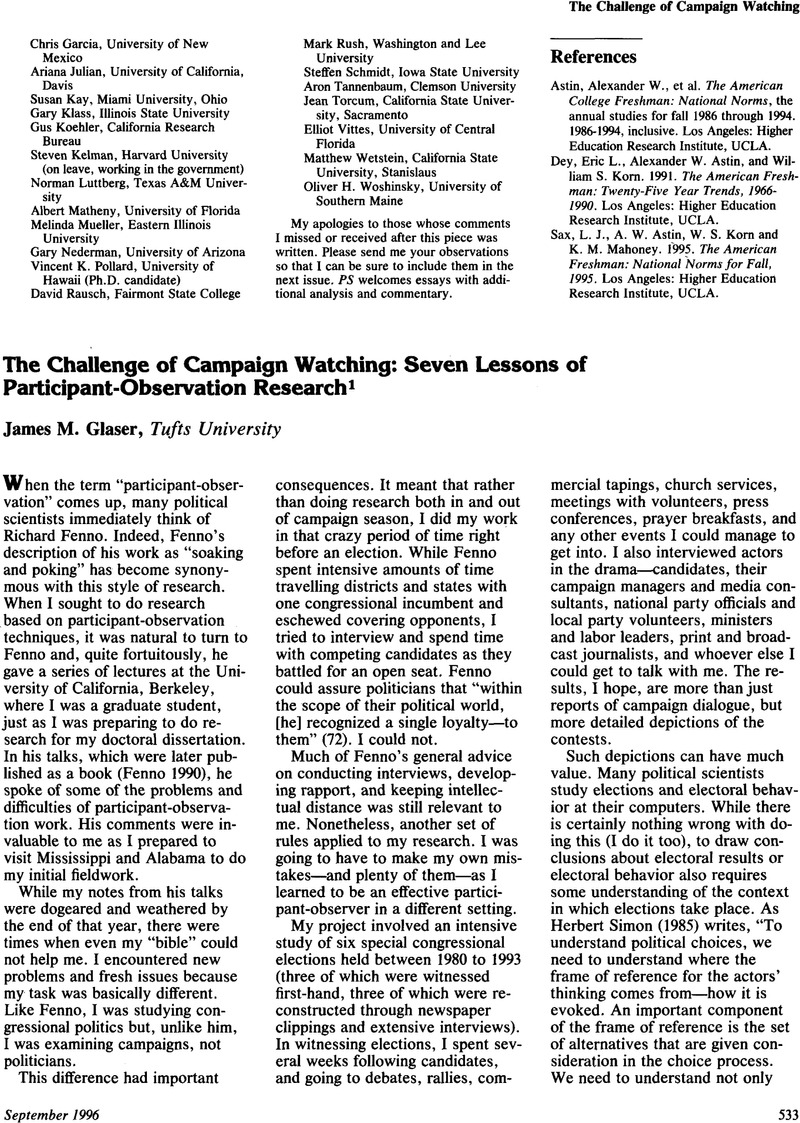Crossref Citations
This article has been cited by the following publications. This list is generated based on data provided by Crossref.
Lee, Mordecai
2001.
LOOKING AT THE POLITICS–ADMINISTRATION DICHOTOMY FROM THE OTHER DIRECTION: PARTICIPANT OBSERVATION BY A STATE SENATOR.
International Journal of Public Administration,
Vol. 24,
Issue. 4,
p.
363.
Jahre, Marianne
and
Pålsson, Henrik
2007.
Participant observation in logistics research.
International Journal of Physical Distribution & Logistics Management,
Vol. 37,
Issue. 2,
p.
148.
Parker, David C.W.
2018.
Following Fenno: Learning from Senate Candidates in the Age of Social Media and Party Polarization.
The Forum,
Vol. 16,
Issue. 2,
p.
145.



